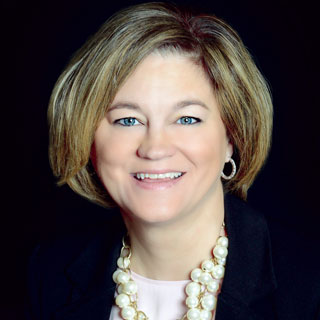
The impact of the pandemic will be felt for years to come by people in every field. It’s safe to say it’s going to take us months, if not years, to recover financially, emotionally and, for some, physically.
In our field, the long-term impact is very much an unknown; there is talk about how this will forever change our world. Today, though, it’s important for people to know we are running on empty. We have been. I see it in my teammates, and I see it on the faces of my friends across the country.
Often, we start conversations with, “How are you doing?” There is really no need to answer because we are all struggling. Don’t misunderstand: We are optimists. We will continue to fight day in and day out for the residents we serve. However, what happens when it’s all just too much?
In a field where regulations are too many to count and more are added every day, sometimes the pressure of doing the right thing seems unattainable. The families who depend on us hear defeat in our voices despite our best efforts to remain positive. People are leaving our field, and it’s becoming harder and harder to convince them to stay.
It makes no difference if we have had three, 30 or 60 positive cases. The pressure and worry never go away. It also doesn’t matter what title or position a team member in long-term care holds — the challenges of the pandemic are here every day. For those of us who own our work, COVID has forever changed who we are as people and as leaders.
For those of us in long-term care, not only are our tanks empty, but we are running on fumes. While this is happening to us in our field, it seems that all the other cars around us have had their tanks filled.
From a leadership perspective, it is becoming increasingly difficult to fill our tanks when there are so many factors fighting against us, including increased scrutiny, dwindling funds, and no definite plans for reopening. We will, however, continue to lean on each other to keep on trucking.
We will look to the families who are in the fight with us and who understand the battles we face. We will continue to plead our case for additional funding and support so we can pay for what we need now and in the future, which hopefully will mean relief pay for our care force working in the isolation areas, wearing their PPE without fail and continuing to social distance and wear a mask even when they aren’t at work.
They are making the sacrifice of their lives … and they continue to show up every day. Our dedicated team members energize me. They fuel me. When I get in the mode where it seems there is no turning the corner, I think of our team members who keep showing up. They bring their change of clothes to work, PPE up, put a smile on their face, get tested twice a week and are there for our residents.
How lucky are we? We understand the sacrifice, we get it. When people ask me how I’m doing, I often answer, “challenging times, for sure.” What I’m realizing is that during the pandemic, even though times are challenging — and there are days it feels like we are running on fumes — we are the ones chosen to do this work. And who better to fight than us?
Julie Thorson was the 2018 recipient of the LeadingAge Dr. Herbert Shore Outstanding Mentor of the Year award. Thorson is currently a coach for the Leading Age’s Larry Minnix Leadership Academy. Her “Living Leadership” blog was named the 2016 “Best New Department” Bronze Award winner by the American Society of Health Publication Editors. The president and CEO of Friendship Haven, a life plan community in Fort Dodge, IA, Thorson is a coach’s daughter at heart. A former part-time nursing home social worker, she is a licensed nursing home administrator and recently completed Leading Age’s Leadership Educator Program.





